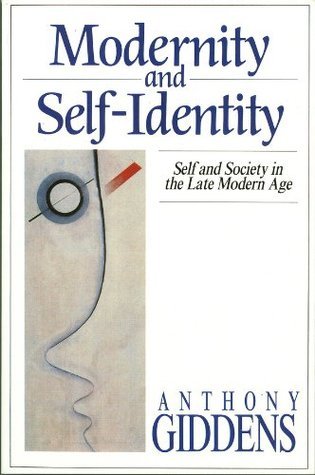What do you think?
Rate this book


268 pages, Kindle Edition
First published January 1, 1991
I found this book extremely annoying.
We can start with some good points. Giddens states, forcefully and clearly, a set of propositions about the 'modern self'. It is a familiar picture for anyone familiar with the literature. If you've read Charles Taylor's Sources of the Self, Lionel Trilling's Sincerity and Authenticity, or Nancy Armstrong's Desire and Domestic Fiction, for example, you will already have encountered the notion that individuality, personality, privacy etc. are hallmarks of modern culture. What Giddens adds to this tradition is a focus on everyday life in Westernised countries today. His approach is systematic. He tries to list all the 'tribulations of the self' we regularly encounter, all the factors that lead to 'existential anxiety', all the systems that lead to the 'sequestration of experience'.
What he does not do, it is sad to say, is defend his conception of 'modernity'. The book is full of extremely frustrating arguments about how 'modern' differs from 'pre-modern' life, where Giddens describes the 'pre-modern' way of doing things in a single sentence, and provides neither evidence nor argument to justify his interpretation of the first 400,000 years of human existence. He expresses absolute certainty that 'modern' life is fundamentally different in character from all the 'pre-modern' life that preceded it, and yet makes no attempt at all to deal with the extreme diversity of 'pre-modern' ways of doing things. How can gardeners from the highlands of New Guinea, herdsmen of the Serengeti, the urbanised farmers of ancient Mesopotamia and the igloo-builders of Siberia seriously all be dumped into the single bucket of the 'pre-modern'?
Perhaps I am overly harsh. Giddens does occasionally reference a famous ethnographer or historian, and there may be a great deal of erudition lurking behind the self-confident prose. But one does suspect that his viewpoint is irremediably Eurocentric. On the odd occasion when he does indulge in some historical detail to substantiate his points, his examples are all European, and they are either quite superficial or just plain wrong. It is not the case, for example, that 'most historians agree that autobiographies (as well as biographies) only developed during the modern period'. What was St Augustine doing when he wrote his Confessions in 397AD, if not writing his autobiography? If the Buddhacharita is not a biography of the Buddha, then what exactly is it? Perhaps there are answers to such questions. Perhaps what Giddens really meant is the a new kind of 'modern' biography emerged in Europe over the last 200-300 years. But if this is what he meant, he should have said so, and he should have explained it.
Now if Giddens' understanding of European history is superficial, his knowledge of Asian, African, American and Oceanic history is apparently non-existent. If he had engaged with world history in the book, he would have had to revise several of his claims. One of his crucial claims, for instance, is that modernity is characterised by the 'pure relationship'. In modernity, our sexual relations are determined by free choice. We select a partner because we want to live with them, not because it fulfills some social obligation to marry someone of a particular kin-group or because an authority-figure has instructed us to do so. (In this we differ greatly from our poor 'pre-modern' forebears.) This kind of 'pure relationship' changes the meaning of sex. Sex is now a pure form of 'intimacy'. In fact, there really was no such thing as 'intimacy' before modernity, because sex always had a public and social character.
What rot.
Anyone who has read a single sūfī devotional poem or a classic of Sanskrit erotic verse who know full well that 'intimacy', privacy and the joys of sex have been valued for their own sake in many times and places. In fact, 'intimacy' was so valued by sūfī and Sanskrit poets of antiquity and the middle ages that it came to symbolise the individual's relationship with God. Now to give Giddens his due, it is probably fair to say that St Augustine inaugurated 1,500 years of prudery in Western culture, and that in the modern West intimacy has been revalued. But if he wanted to make this argument he should have done so.
It could be objected that I have focused on the wrong aspect of the book. The book is really a book about what it is like to be an individual today in the West, not a world history explaining the development of 'modernity'. Taken this way, it has a lot of merits, primarily as a kind of textbook that summarises the common sense of Anglo-American liberalism in the 1990s. But on the very first page, Giddens claims that it is not only a few societies he wishes to examine, nor will he focus only on one historical moment. It is 'modernity' as a whole that he sets out to describe, and unfortunately he makes very few of the comparisons necessary to distinguish what is 'modern' from what is not.